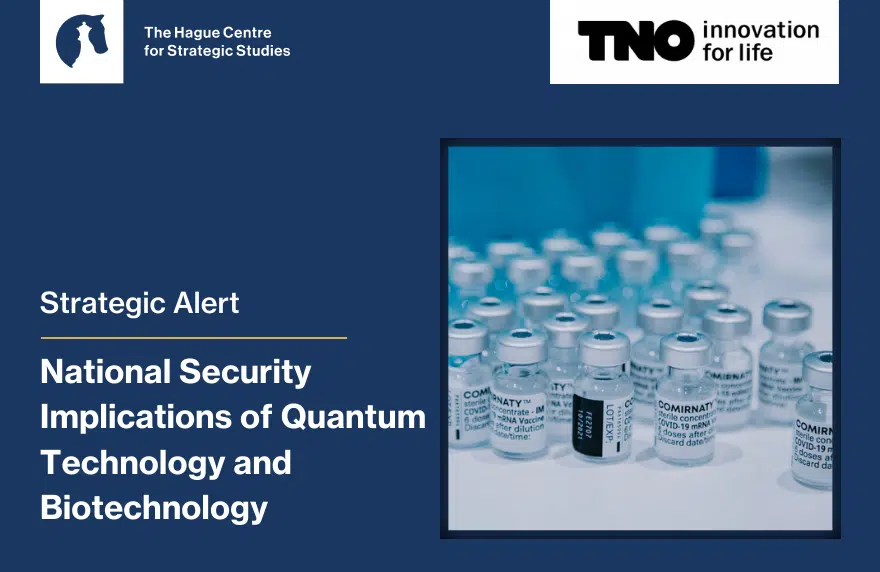Research
While emerging (and) disruptive technologies (EDTs) play a critical role in generating economic prosperity, they also generate a bevy of challenges, posing both risks and opportunities, often at the same time.
International cooperation is therefore required but severely hampered by the fact that access to and control over EDTs is increasingly considered to be a zero-sum game. In the current age of interstate rivalry, states are incentivised to leverage the tools at their disposal to expand their access to and control over these technologies to boost their own current and future competitiveness and to undermine that of their adversaries, and also, to some extent, that of their allies. A previous HCSS study dating from 2021 considered this phenomenon under the label of ‘techno-nationalism’. The current report builds on this study and updates and extends its recommendations.
In the current competitive global environment, Dutch policymakers should seek to reduce the Dutch innovation ecosystem’s vulnerability to techno-nationalist practices and to improve its ability to compete internationally, while simultaneously seeking international cooperation to regulate the societal impact of EDTs. The Netherlands has put various forms of long-term funding in place to bolster the productivity of its start-up ecosystem in recent years. However, new legislation must also mitigate Dutch vulnerabilities beyond foreign direct investment (FDI)-based techno-nationalist practises.
This study covers quantum computing, AI, semiconductors, and space-related technologies. These EDTs hold the potential of having (and, in some cases, already have) a broad impact on geopolitics, society and warfare. These four disruptive technologies and their implications are extensively elaborated on in the Annex to this study.
The threats and opportunities posed by EDTs are enumerated across three dimensions: (1) access to EDTs; (2) warfighting capabilities and EDTs; and (3) the societal impact of EDTs.
The Dutch ability to meet challenges posed by EDTs is served by awareness and understanding of EDT-related issues among policymakers and society. This will be key to spearhead and support the creation of national and international regulatory frameworks geared towards governing acceptable use. This report offers recommendations to policymakers of what can be envisaged as possible solutions:.
- Mitigate the vulnerability of Dutch and EU markets
- Bolster the competitiveness of Dutch and EU markets
- Enhance awareness and understanding of EDT-related issues
- Reduce overreliance on East Asia within semiconductor supply chains
- Support the creation of national and international regulatory frameworks
- Enact Dutch and European legislation regulating social media platforms
- Facilitate the development of European champions and coalitions of the willing.
These recommendations should become prominent objectives for Dutch and European policymakers. The geopolitical situation is tense and displaying a straightforward message: the alarm bells have gone off, the time to act is now.
Authors: Hugo van Manen, Stella Kim, Adam Meszaros, Michal Gorecki
Contributions by: Rob de Wijk, Frank Bekkers, Joris Teer, Tim Sweijs
The research for and production of this report has been conducted within the PROGRESS research framework agreement. Responsibility for the contents and for the opinions expressed, rests solely with the authors and does not constitute, nor should it be construed as, an endorsement by the Netherlands Ministries of Foreign Affairs and Defence.










